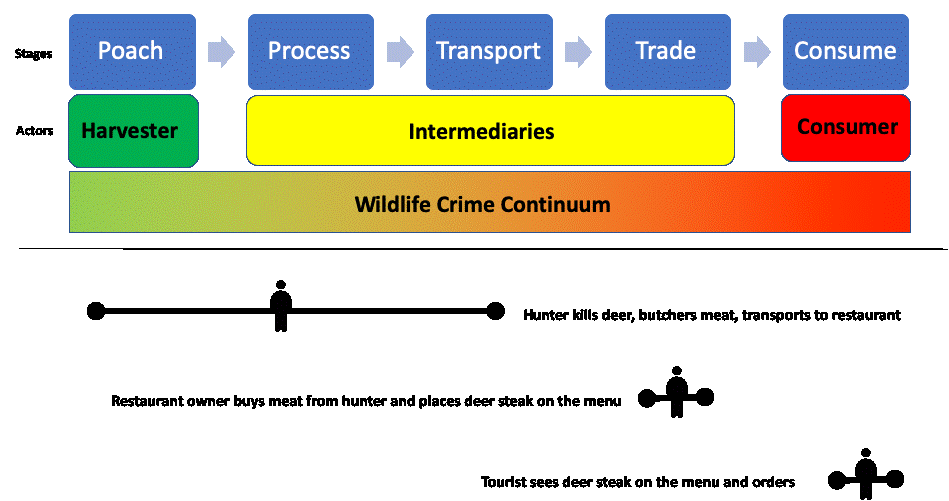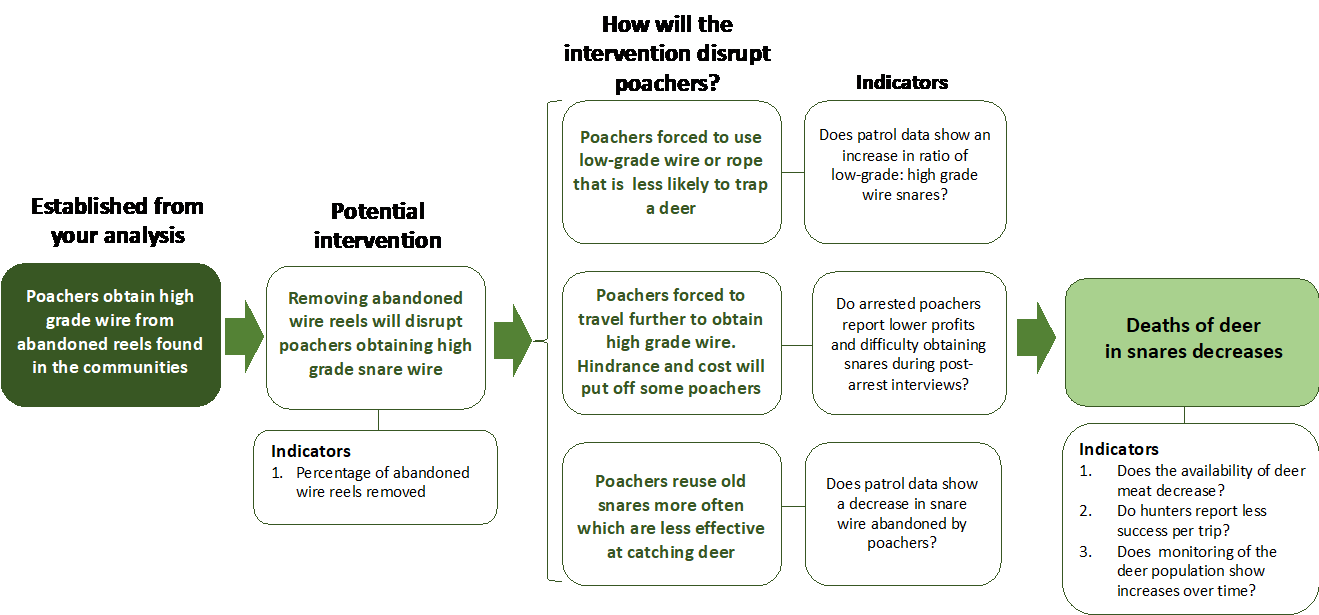Problem-oriented policing bij de bescherming van wilde dieren

Dit artikel is alleen beschikbaar in het Engels.
Officers for a national wildlife authority, may experience déjà vu while on the job. They arrest poacher after poacher but the poaching threat is not decreasing. They get called out to deal with crop raiding animals, but despite culling and translocation, each year there are more callouts. Probably they are not alone in thinking ‘if we had more patrol teams … or faster response vehicles … or more money for operations, we could solve our problems’. Instead, they have a restricted budget and the public expects them to deal with a broad range of wildlife problems, some of which use a lot of time and resources but do not seem to change.
Balance between science and practice, law enforcement and conservation
How wildlife officers might address these problems differently is the focus of this new guide, released by the Center for Problem-Oriented Policing. Written by Andrew Lemieux (NSCR) and Rob Pickles (Panthera), Problem-Oriented Wildlife Protection explains how the ideas and principles of problem-oriented policing can be adapted to wildlife protection problems. They also show how a wildlife authority could start a problem-oriented project of its own. Problem-oriented policing was developed to help police officers find ways of reducing crime without substantial additional resources. A problem-oriented approach (a) supports ground-up initiatives addressing the context of a specific problem, (b) encourages innovative solutions beyond the criminal justice system, and (c) promotes collaboration within and beyond your agency. The development of the guide relied on input from 21 reviewers with backgrounds in criminology, law enforcement, conservation science and conservation practice. This led to major shifts over time as Lemieux and Pickles tried to find a balance between the worlds of science and practice, law enforcement and conservation.
Difficult questions to answer in wildlife crime prevention
The goal in writing this guide was to facilitate the uptake and use of proactive, information-led wildlife crime prevention initiatives that do not rely on law enforcement alone. The guide also describes how to develop case studies when using this approach to build a strong empirical base to determine 'what works'; a notoriously difficult question to answer in wildlife crime prevention. The guide explains by breaking down complex problems into more specific issues, and using targeted interventions, it will be easier to design metrics that truly measure impact. The figures below show how the actors involved in bushmeat trade might be mapped out along the wildlife crime continuum and how one might measure the impact of a specific intervention targeting one of those actors.

Finding ways to understand what works is critical
Given the lack of resources for wildlife protection around the world, including in the EU, finding ways to understand what works and share lessons learned is critical. The guide explains this can be done internally within organizations, or externally through forums such as the Herman Goldstein Award for Excellence in Problem-Oriented Policing and scientific papers.
Word of encouragement
The final paragraph of the guide ends with a word of encouragement: For readers who are ready to take on a problem-oriented project after reading this guide, we wish you all the best. Take comfort in the old adage, ‘problem solvers are made not born’. You and your colleagues are likely to run into frustrations along your road to success. Learn from the ups and downs of your project, and share these experiences with others, so we can all learn together. The value of a collection of problem-oriented case studies on wildlife prevention should not be underestimated. These small projects will help move us towards a better understanding of what works and what does not work in wildlife protection.
This article contains edited passages and figures from the guide Problem-Oriented Wildlife Protection.
Publication details and further reading
Lemieux, A.M. & Pickles, R.S.A. (2020). Problem-Oriented Wildlife Protection. Phoenix, AZ: Center for Problem-Oriented Policing, Arizona State University.
Interest from practitioners has resulted in the translation of the guide into Bahasa-Indonesia, French, Thai, Bahasa-Malaysia and Spanish.
Deel dit artikel
Actuele berichten


